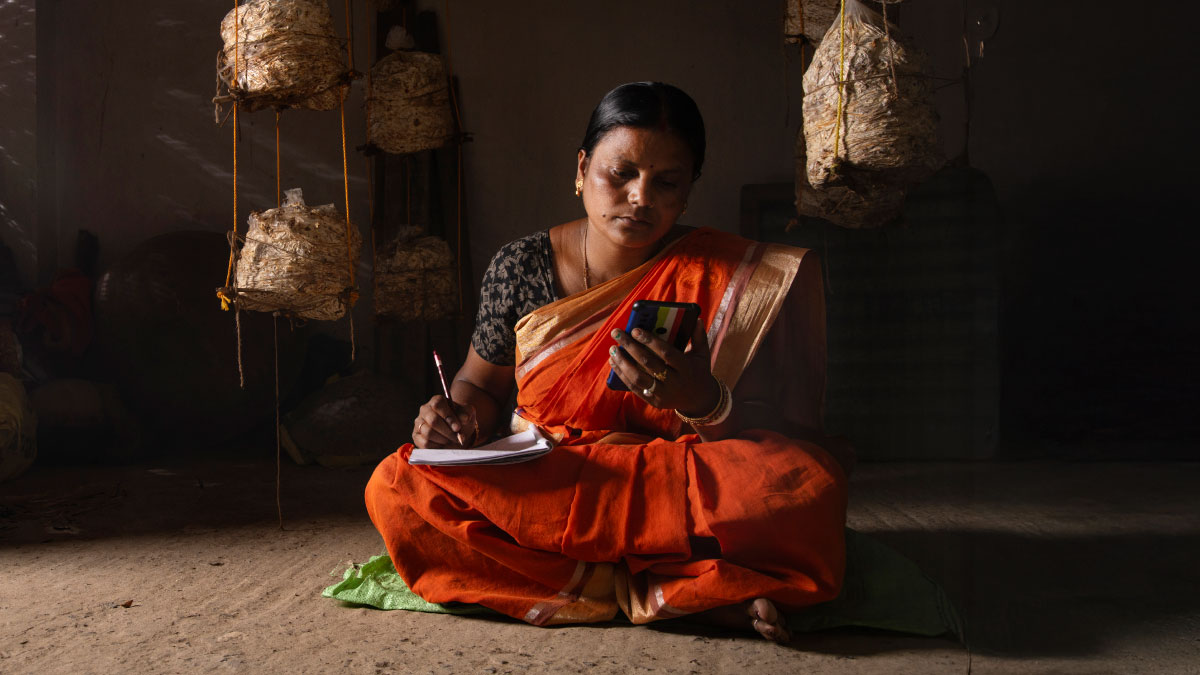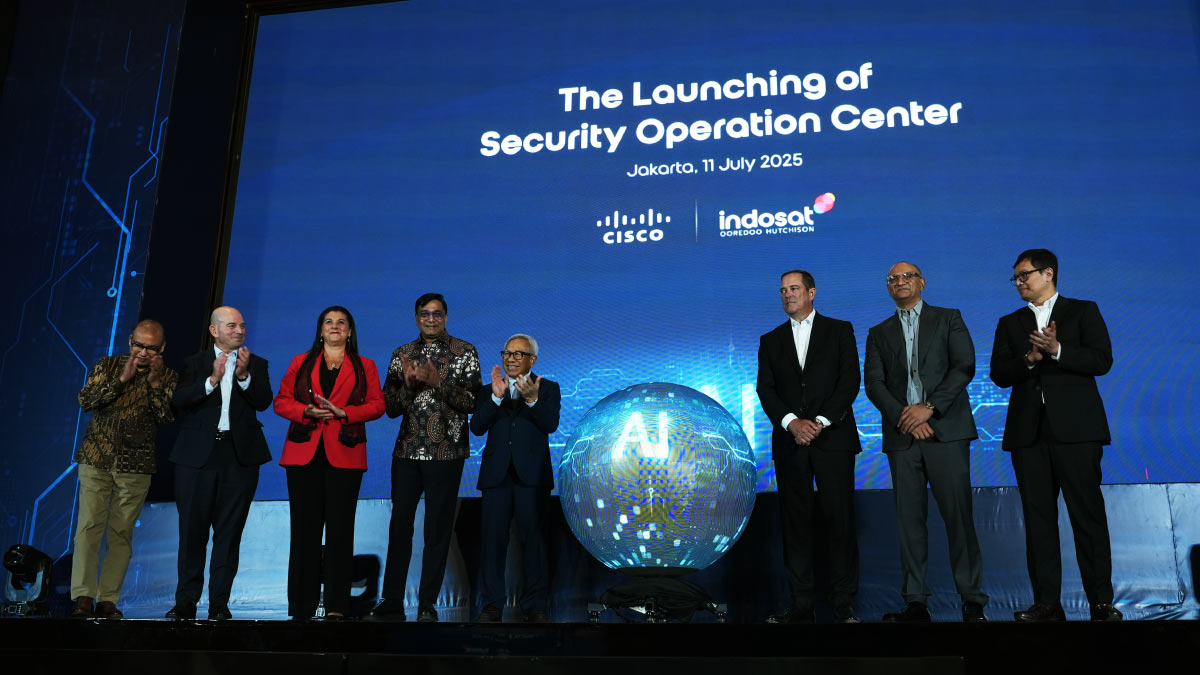In recent years, India has leapt forward in connectivity, education, innovation, entrepreneurship, and more.
Cisco helped make it happen.
In 2015, the company set an ambitious goal: to positively impact 50 million lives in India by 2025. And in March, the initiative — dubbed Journey to Opportunity — surpassed its goal.
This achievement, which has been validated in third-party impact reports, represented a concerted effort on a wide variety of fronts, including education, health care, digital connectivity, entrepreneurship and skills training. And while the third-party validation efforts focused on the impact of the India Cash Grant program, the overall effort brought together key Cisco groups like the Country Digital Acceleration (CDA) program, Networking Academy, and Cisco Foundation. Cisco India’s Purpose Office led Journey to Opportunity, which ran in parallel to a separate successful Cisco effort: to positively impact across the planet.
Charu Adesnik, executive director of the Cisco Foundation and director of social impact investments, explained the scope of the India milestone.
“Our India Purpose Office team’s extraordinary achievement exemplifies Cisco’s strategy for social investment,” she said, “from deep collaboration with local experts, to rigorous measurement of positive impact, to steady emphasis on the unique power of tech-fueled innovation to reach more people in need. Their work has helped advance our vision of thriving people and empowered communities throughout India.”
Guy Diedrich, Cisco’s senior vice president and global innovation officer, also applauded the achievement, with an eye on the future.
“Cisco has been a trusted advisor and key partner in India’s digital transformation over the last 30 years,” he said. “Reaching our goal of positively impacting 50 million people is just the beginning of what we can accomplish there.”
Diedrich also leads Cisco’s Country Digital Acceleration (CDA) program, which has worked with governments, academia, and industry to help transform 50 countries around the world, as well as the Cisco Networking Academy, the largest company-led digital skills program of its kind. Both groups played a critical role in positively impacting 50 million in India.
“More recently,” Diedrich added, “our efforts in India have been specifically directed toward enhancing AI, cybersecurity, data center capabilities, and digital skills training to drive progress across society.”
Cisco’s Journey to Opportunity dovetailed with a government program, Digital India, in which nearly one billion Indians have become connected, starting with mobile phones.
“When you connect the unconnected, magic happens,” said Harish Krishnan, head of the Cisco India Purpose Office. “That’s our Cisco philosophy, and it’s the [Indian] government’s as well.”
In 2013, the Indian government also mandated that companies contribute to corporate social responsibility (CSR) initiatives.
“India’s Companies Act mandates that you be very strategic,” said Rohini Kamath, a program manager for who leads Cisco India’s Cash Grant Program. “And Cisco’s CSR policy stresses compliance and reporting. So, it’s not just about dispersing funding. We validate — and the law also requires it — with a third-party impact assessment upon one year of the closure of a project.”
Big challenges, big team efforts
The Journey to Opportunity demanded that a wide range of Cisco teams, leaders, and individuals worked together seamlessly.
“India is a microcosm of Cisco worldwide,” explained Krishnan. “We have such a big presence in India with every major corporate function, whether its government affairs, marketing, sales, innovation, CDA, and Networking Academy. We used to talk to each other but not in a very structured way. So, when we created the India Purpose Office, it brought all these components together and unleashed the power of One Cisco.”
Partnerships have been the linchpin of Cisco’s success in India. That has included the Indian government, which works closely with CDA and the Networking Academy, as well as non-profit organizations that became recipients of Cisco cash grants and tech-related support.
Here are a few of the most impactful:
- Like Cisco, NIIT Foundation is hyper-focused on cybersecurity. And with Cisco’s support, the foundation has engaged more than one million people across India, building cybersecurity awareness and skills for India’s future workforce.
- Quest Alliance partnered with Cisco to develop real-world, job-ready skills for 300,000 students in its Industrial Training Institutes.
- Project Niramay benefitted from Cisco support and technology to transform public health care, especially through telemedicine and health education in remote rural areas.
- Indus Action “bridges the gap between policy and action.” Cisco helps it to streamline access to educational opportunity, as well as school admissions and other processes across India.
These organizations fell under Cisco’s three key focus areas: crisis response and critical needs; education; and economic empowerment.
“Each of these verticals had their further categorizations,” Kamath further explained. “For example, education is focused on K through 10, but there are now particular efforts centered on online safety and cybersecurity. It’s just a gap that we noticed. And economic empowerment has further categorizations: there's upskilling and livelihood, there's innovation, then there's sector specific, like agriculture and entrepreneurship.”
Empowering women — and building for the future
Regardless of the focus area, access for all was a key concern. For example, economic empowerment programs support women entrepreneurs and microbusinesses, leveraging technology to build business growth and digital skills.
“Technology has to play the role of the enabler,” said Kamath. “It’s not a silver bullet for every problem. If you look at rural India, there is now a penetration of mobile phones. But a woman starting a business might not know how to use it to accept digital payments or have the required documentation to avail a particular government scheme. That’s where we can step in and where technology becomes an enabler.”
Kamath cited success stories in which women-owned small business — from tailoring and food processing to traditional crafts and fashion — were able to uplevel their business through digital connectivity and services, while reaching new audiences for their products.
For businesses small and large, cybersecurity is a relentless focus.
“For Cisco, there is no more important thing than cybersecurity,” Krishnan stressed. When more and more people are getting connected, they're also vulnerable for cybersecurity scams. That’s why our cybersecurity programs are so important to us.”
In the end — whether building skills, infrastructure, security, or health care — it’s all about the future. And in a country of 1.2 billion people, there will be no shortage of challenges (and opportunities!) to come.
“The last ten years has been a great education for us,” Krishnan concluded. “We want to ride on that platform and take this to the next level. In the next few years, we can be more deliberate in determining where we can have the most impact. There’s plenty of work ahead, and we’re proud to be part of it.”
For more information, visit Corporate Social Responsibility in India





